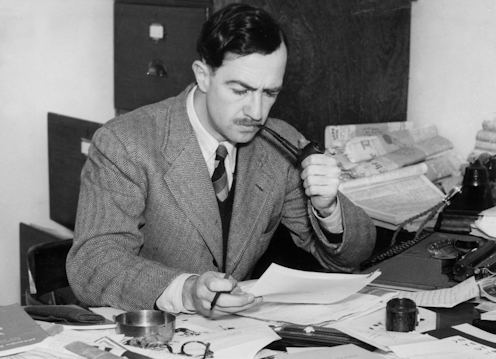How the parallel lives of two influential editors shaped Australia's literary culture
- Written by Jeff Sparrow, Lecturer, Centre for Advancing Journalism, The University of Melbourne

The cover of Jim Davidson’s Emperors in Lilliput[1] juxtaposes a photograph of Meanjin’s Clem Christesen smoking a pipe with a picture of Overland’s Stephen Murray-Smith lighting his.
The design conveys Davidson’s focus on the parallels between the two editors, each of whom founded and presided over a little magazine for a remarkable 34 years. But the mirrored images also highlight the gulf between a past in which Men of Letters might casually puff on their briars and a present in which pipe-smoking editors constitute a faintly risible cliché.
Review: Emperors in Lilliput – Jim Davidson (Miegunyah Press).
















